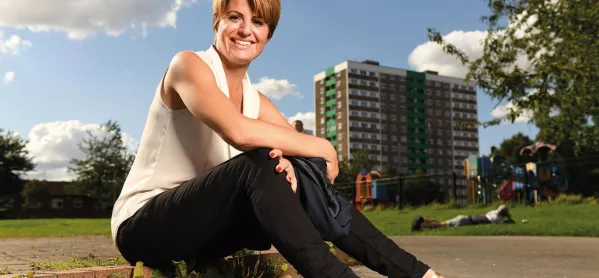Replace GCSE resits with modular exams, says Emma Hardy
Share
Replace GCSE resits with modular exams, says Emma Hardy
Labour’s shadow FE minister has called for the current GCSE maths resit policy to be scrapped in favour of a modular approach.
Speaking exclusively to Tes after a month in the role, Emma Hardy said that a lifelong approach to gaining GCSE maths would be more beneficial for students than the current policy, which sees many resit over and over again.
She said: “It is about never shutting the door. It is not saying that we do not believe everyone is capable of achieving a GCSE in maths – as a teacher I believe everyone is capable of achieving, it just takes some people longer – but everyone is capable.
“And that is the way to look at this GCSE: some people will do it at school, others will do it when they resit, some people it might take them three years but instead of making them fail it three times, let them take it slowly and build up each bit. You still get there, the aim and the ambition should always be that we are going to get there.”
Opinion: 'Our young people deserve better than GCSE resits'
News: GCSE results: English and maths resits pass rates drop
Background: Meet the student who passed GCSE maths at the NINTH try
Current government policy means that students who do not achieve a grade 4 or above in GCSE English or maths in Year 11 have to resit the qualifications. If a candidate gained a grade 3, they have to retake a GCSE. However, those with grade 2 or below have the option of either taking the GCSE or an approved stepping-stone qualification.
The policy is much criticised across the FE sector, with many believing the exams set students up to fail, and waste college resources in doing so.
Results from the November resits were published in January and found that the percentage of students who had achieved the grade 4 had dropped from 2017 – with fewer than a quarter of students sitting OCR’s GCSE maths paper achieving a pass.
Modular approach
Ms Hardy stressed that a modular approach was not a Labour policy, but suggested that students should be able to gain certificates in different areas of maths, which would then build up to the full GCSE.
She said: “Rather than resitting GCSE maths at the end of the year, you could show, for example, that you understand multiplication and division, that you understand fractions and percentages, and have the certificates to prove it. And then these could be equate to a quarter, a half, or three-quarters of a GCSE.
“Instead of saying you failed your GCSE, you could have half a GCSE or three-quarters of a GCSE. For adult learners, for people returning to work for upskilling our country, you know, I was talking to B&Q who have a 61-year-old man on a return-to-work course and he left school with nothing. Are you going to put people like him through a GCSE? Or are we going to find something better to do to recognise the learning and understanding they have? We should be able to say, if you can continue to build on these elements, you can get your GCSE.”




